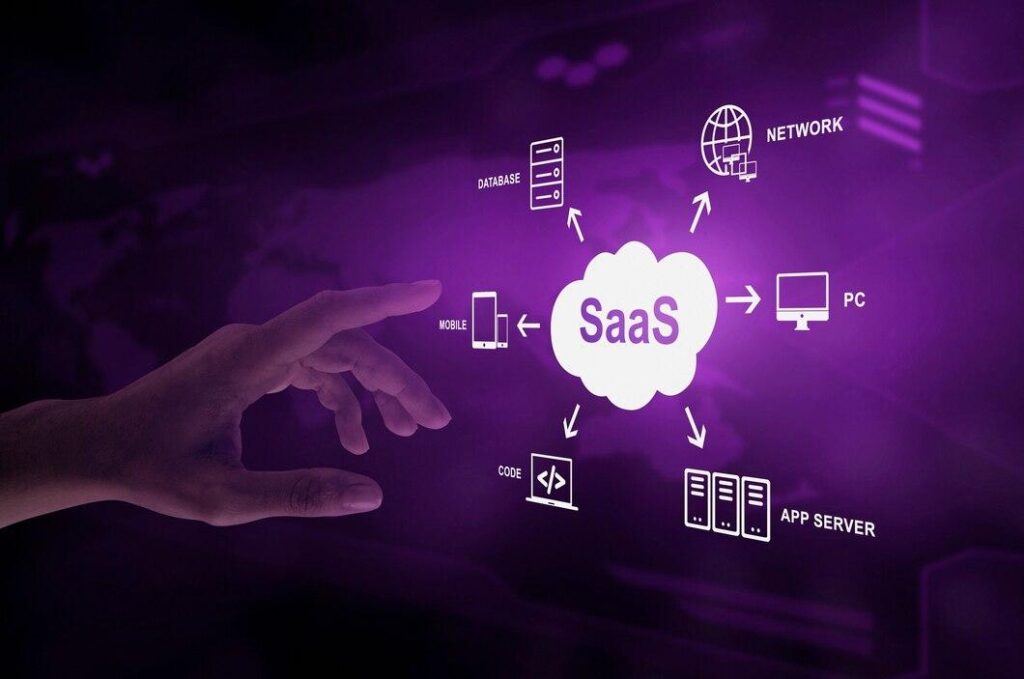Highlights
- Importance of SaaS security and compliance standards.
- Benefits of scalable SaaS enterprise solutions.
- Integrating SaaS for seamless enterprise operations.
- Leveraging analytics for improved decision-making.

In recent years, the trend towards SaaS solutions has gained a significant reputation. This change in trend considerably shifts the working of enterprises in different sectors. From operations and collaborations to scaling the business, enterprises are taking SaaS solutions help in various sectors.
However, SaaS implementations have to align with business goals and technology to scale the business. Let’s get into the details of enterprise requirements for SaaS success, covering important points that a business must see.
Understanding Enterprise Requirements for SaaS
Enterprises’ needs are diverse. From security and compliance to scalability and integration, they need assistance on almost every side to streamline their growth. So, SaaS success is only possible with an understanding of the unique requirements of the business.
- Customization
Unlike generic SaaS products, enterprise SaaS solutions must cater to specific workflows and use cases. Customization ensures that the software aligns with organizational goals and enhances productivity.
- Flexibility
Enterprises often need adaptable solutions that can evolve as the business grows. This flexibility supports long-term adoption and reduces the need for frequent replacements or overhauls.
Choosing the Right Enterprise SaaS Products
Not all SaaS platforms are created equal, especially for large-scale operations. Selecting the right enterprise SaaS products involves a balance between functionality, ease of use, and technical capabilities. Some of the key things to consider:
- Feature Set
The product should address the enterprise’s core operational challenges while offering advanced functionalities like analytics, automation, and AI-driven insights.
- User Experience
Enterprise solutions must balance robust capabilities with intuitive interfaces to ensure high user adoption rates.
- Vendor Reputation
Working with a trusted vendor who understands enterprise dynamics is crucial to minimizing risks.
3. Ensuring Robust SaaS Security Requirements
Security is a cornerstone of enterprise SaaS success. Cyber threats will be there always, so SaaS providers need to provide data protection and compliance with strict standards. Key SaaS security requirements include:
- Data Encryption
Protecting sensitive enterprise data with end-to-end encryption, both at rest and in transit.
- Access Controls
Implementing role-based access and multi-factor authentication to restrict unauthorized access.
- Incident Response
Ensuring the SaaS provider has a comprehensive plan for addressing data breaches and minimizing downtime.
By meeting these security benchmarks, enterprises can trust their SaaS platforms to safeguard critical information and maintain operational integrity.
Addressing SaaS Compliance Standards
Enterprises operating in regulated industries like finance, healthcare, and government must adhere to strict SaaS compliance standards. These standards ensure that SaaS providers align with legal and industry-specific requirements.
- Regulatory Adherence
SaaS platforms should comply with regulations like GDPR, HIPAA, and SOC 2, depending on the enterprise’s location and sector.
- Auditable Practices
Enterprises should ensure that the SaaS provider maintains detailed logs and offers transparent reporting mechanisms to meet compliance needs.
- Continuous Monitoring
Compliance is not a one-time effort. Enterprises must work with providers to stay updated on evolving regulations.
Prioritizing Enterprise SaaS Scalability
One of the significant advantages of SaaS platforms is their ability to grow alongside the business. Enterprise SaaS scalability allows organizations to accommodate increasing workloads, users, and data without significant performance issues.
- Infrastructure Readiness
Cloud-native SaaS platforms with elastic architectures can handle growing demands efficiently.
- Cost Management
Enterprises must ensure that scaling up does not result in disproportionate costs. They need to check monthly recurring revenue and maintain a balance between growth and financial sense.
- Future-Proofing
Opt for SaaS products that leverage emerging technologies like AI and IoT, ensuring relevance in a rapidly changing landscape.
Streamlining SaaS Integration for Enterprises
Modern enterprises rely on multiple software tools to manage their operations. Seamless SaaS integration for enterprises ensures that all systems work together harmoniously, fostering productivity and reducing redundancy.
- API Availability
A robust API ecosystem allows enterprises to connect their SaaS tools with existing software, creating a unified digital environment.
- Data Synchronization
Real-time data syncing ensures consistency and eliminates silos across departments.
- Workflow Automation
Integrated systems enable the automation of repetitive tasks, freeing up resources for strategic initiatives.
Effective integration not only simplifies operations but also amplifies the value of enterprise SaaS investments.
Building Collaborative Relationships with Providers
The relationship between an enterprise and its SaaS provider goes beyond the initial purchase. Building a collaborative partnership ensures that the SaaS platform evolves in tandem with the business’s needs. Regular feedback sessions, roadmap alignments, and dedicated support channels are vital for long-term success.
Conclusion
Security, compliance, scalability, and integration are the 4 things that must be there to achieve SaaS success. Understanding unique enterprise requirements for SaaS is the only way to unlock efficiency and drive innovation. As the trend is moving progressively towards SaaS only businesses that are working in this area will have a better chance to stay ahead of a competitive market and achieve sustainable growth.
Well, this is it from our side for now. To learn more about such useful SaaS insights stay connected with submit-blog. You can even write for us or publish a guest post on our site, so feel free to contact us anytime.